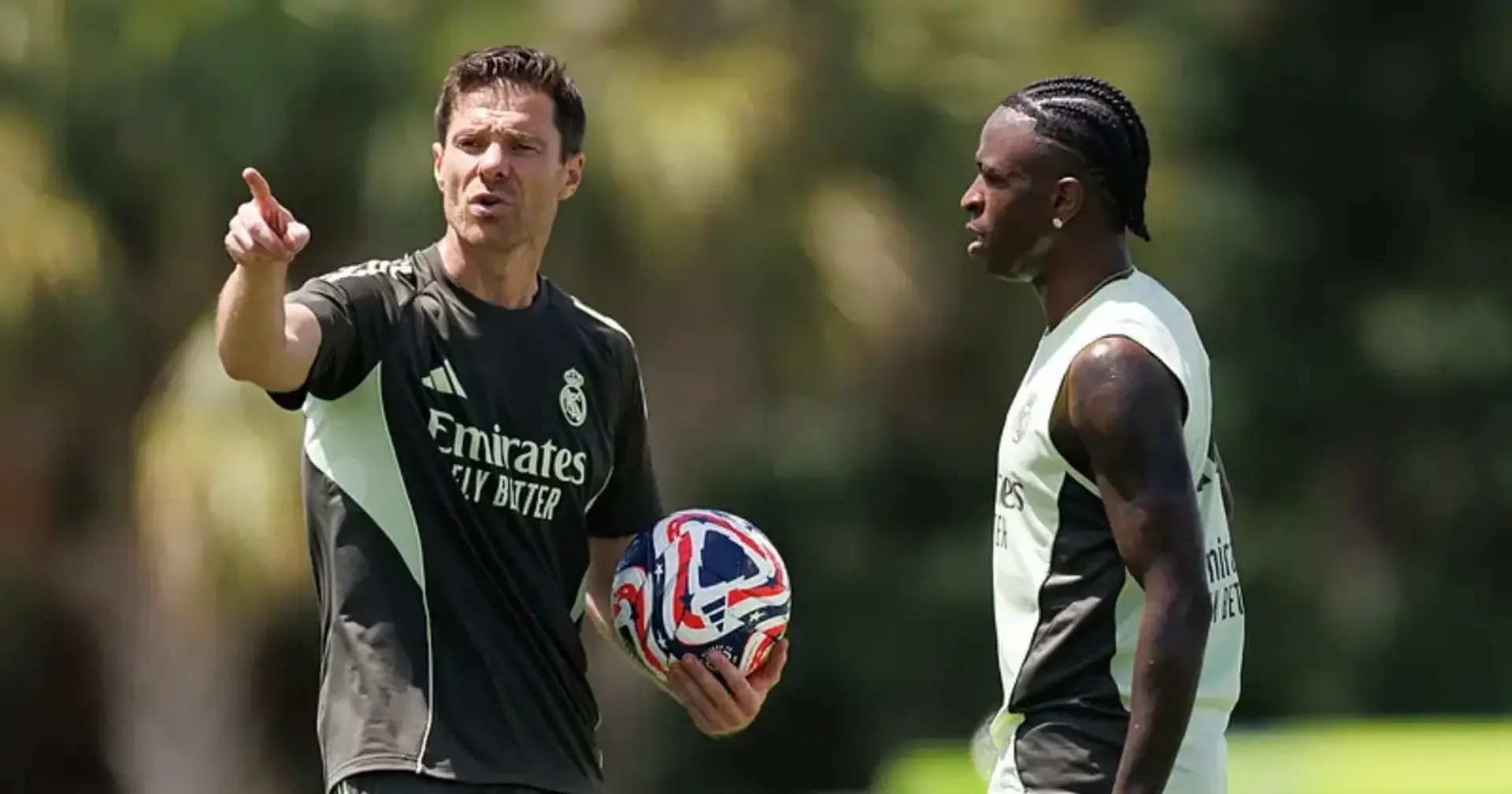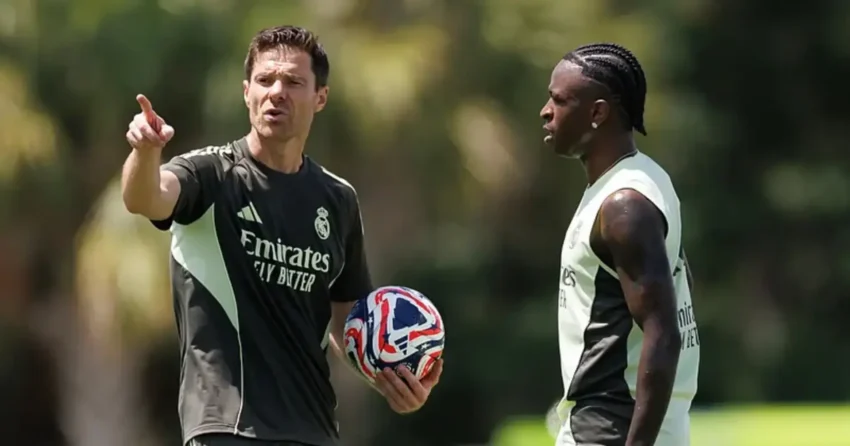
In recent weeks, Real Madrid manager Xabi Alonso has found himself at the center of attention following his surprising decision to bench Brazilian star Vinícius Júnior in one of the opening games of the season. The move sparked speculation about possible friction within the squad, contract tensions, or even a decline in Vinícius’s standing under the new coach. However, Alonso has since addressed the situation directly, offering clarity on both the tactical reasoning behind the benching and the current status of Vinícius’s contract.
Alonso made it clear that the decision to start Vinícius on the bench was strictly tactical, not personal or disciplinary. He emphasized the importance of squad rotation and maintaining competitive intensity among all players. “I’m very happy with Vini,” Alonso said. “Against Oviedo, he showed he can have a big impact off the bench. We’re just getting started, and he’s going to be fundamental.” This highlights Alonso’s broader philosophy of meritocracy, where no player is automatically guaranteed a starting role and contributions from the bench are just as valuable.
Beyond the pitch, speculation surrounding Vinícius’s contract has also been growing. The Brazilian winger still has two years remaining on his current deal, and while fans had expected an early extension, Alonso revealed that no renewal talks are currently underway. Importantly, Alonso insisted that the lack of contract movement has not affected how Vinícius is viewed within the team. “He’ll be a key player,” the coach reaffirmed, signaling that his long-term role in the squad is secure regardless of short-term decisions.
Alonso also spoke about the importance of unity within the squad. “In a dressing room, the key is that everyone is willing to contribute, whether on the pitch or from somewhere else,” he said. “Truly believing in this is essential. Believing in the group is important.” These comments underscore the culture Alonso is building—one where teamwork and belief in the collective matter more than individual stardom or contract status.
Veteran voices like Luis Figo have also backed Alonso’s approach. Figo suggested that benching Vinícius was likely a strategic move aimed at dealing with specific opponents rather than a sign of dissatisfaction. “You have to demand respect,” Alonso previously noted in relation to team dynamics, reinforcing his message that players must continuously prove themselves, regardless of reputation.
In summary, Alonso’s handling of Vinícius Júnior sends a clear message: while the Brazilian remains a crucial figure for Real Madrid, no player is above tactical flexibility or team-oriented decisions. With two years still left on his contract and Alonso expressing public support, there is no immediate cause for alarm. The focus is firmly on building a competitive, cohesive team—and if anything, Alonso’s decisions may push Vinícius to reach even higher levels of performance in the months ahead.
